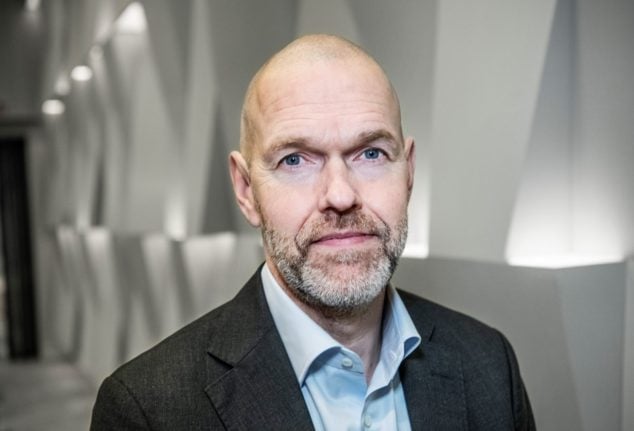Sweden joined Switzerland, Czechia and Hungary in the small group of countries to lower their so-called policy rates earlier this week when the country’s central bank lowered the interest rate from 4 percent to 3.75.
There are natural explanations for this, according to financial experts.
“Sweden’s economy is more affected by interest rate hikes,” head economist at Nordea, Torbjörn Isaksson, told TT newswire.
Sweden’s GDP has shrunk four quarters in a row, putting Sweden at the bottom of the table when it comes to growth over the past year. Unemployment and bankruptcies have also gone up more than elsewhere.
READ ALSO:
- Which Swedish banks have the lowest mortgage rates?
- Three ways Sweden’s slashed interest rate will boost your finances
Isaksson believes that that’s the main reason Sweden is lowering its policy rate before other central banks, although he predicts the European central bank is only weeks away from lowering its key interest rate.
Although inflation in Sweden has dropped, the country still has higher inflation than both Denmark and Finland – the main reason for cutting the rate in Sweden is the fact that households here are so much more sensitive to high interest rates.
“A high level of household debt and short term loans has meant that high interest rates have hit harder here than elsewhere,” Isaksson said.
“That’s why there’s a greater need to take our foot off the brakes slightly.”
Having said that, Sweden’s economy still has a strong foundation.. Swedish business remains competitive, salaries are set “responsibly”, and the country has strong state finances, Isaksson said.
“Lowering interest rates while remaining hawkish is the best way to go,” SEB head economist Robert Bergqvist said.
“The central bank is showing that they’re taking this first step, they’re ready to take further steps, but they want to keep expectations low.”
Bergqvist described the Swedish economy as being out in the open sea, exposed to strong waves.
“We have strong state finances which work as an airbag, but I think the central bank is happy it can show that it’s reacting to what’s happening in the Swedish economy,” he said.
“It would almost be professional misconduct to not lower the interest rate based on what’s happening with inflation, so it’s hard for the central bank to avoid doing so.”



 Please whitelist us to continue reading.
Please whitelist us to continue reading.
Member comments